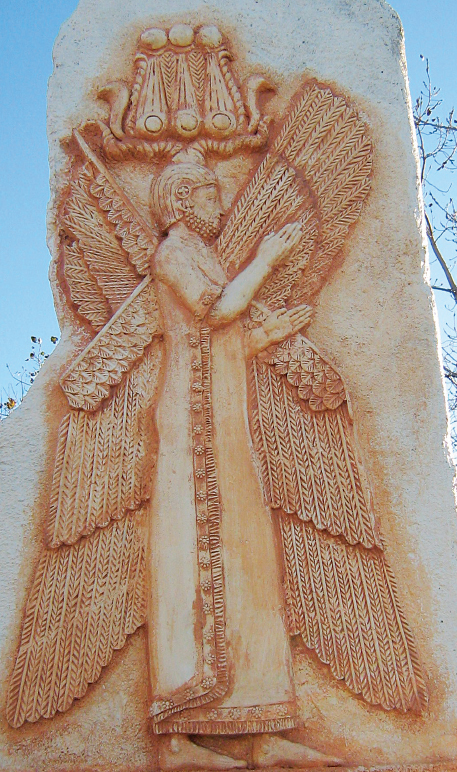Individuals in Society: Cyrus the Great

Cyrus (r. 559–
Another story recounted by Herodotus tells how Cyrus’s playmates chose him king. He assigned them specific duties, and when one aristocratic boy refused to obey his orders, Cyrus had him “arrested.” The boy’s father later demanded that Cyrus explain his haughty behavior. Cyrus replied that the other boys had chosen him king, and he did his duty justly, as a king should. He told the man that if he had done anything wrong, he was there to take his punishment. The man and the other boys admired his calm sense of duty and responsibility. Through this anecdote, the historian projected Cyrus’s intelligence and good qualities, revealed later in life, back into his boyhood.
Astyages eventually marched against the grown Cyrus and was defeated. Instead of enslaving the Medes, Cyrus incorporated them into the new kingdom of Persia, thus demonstrating his inclusive concept of rule. This relatively mild rule continued with his later conquests. He won the admiration of many Greeks, whom he allowed to continue their religious rituals and intellectual pursuits.
After conquering Babylonia, Cyrus allowed the Jews who had been in forced exile there to return to Jerusalem. Hebrew scripture portrays Cyrus as divinely chosen, as evidenced by this biblical passage, probably written in the late sixth century B.C.E., shortly after the end of the Babylonian Captivity:
Thus said the Lord to Cyrus, His anointed one ––
Whose right hand He has grasped,
Treading down nations before him,
Ungirding the loins of kings,
Opening doors before him, and letting no gate stay shut:
I will march before you, and level the hills that loom up;
I will shatter doors of bronze
And cut down iron bars.
I will give you treasures concealed in the dark
And secret hoards —
So that you may know that it is I the LORD,
The God of Israel, who call you by name. . . .
It was I who roused him [Cyrus] for victory
And who level all roads for him.
He shall rebuild My city
And let My exiled people go
Without price and without payment
— said the LORD of hosts. (Isaiah 45:1–
*Reprinted from the Tanakh: The Holy Scriptures by permission of the University of Nebraska Press. Copyright 1985 The Jewish Publication Society, Philadelphia.
Cyrus died in 530 B.C.E. while campaigning in Central Asia. Though much of his life was spent at war, he knew how to govern conquered peoples effectively and acquired a reputation for benevolence and tolerance. Much about his life can never be known, but Cyrus appears to have been a practical man of sound judgment, keenly interested in foreign peoples and their ways of life.
QUESTIONS FOR ANALYSIS
- How are the Greek stories, as told by Herodotus, and the biblical account similar in their portrayals of Cyrus? How are they different?
- Herodotus, the Bible, and the inscription on the Cyrus cylinder have all been influential in establishing the largely positive historical view of Cyrus. What limitations might there be in using these as historical sources?

ONLINE DOCUMENT PROJECT
What strategies did Persian rulers like Cyrus use to bind together far-
See Document Project for Chapter 2.